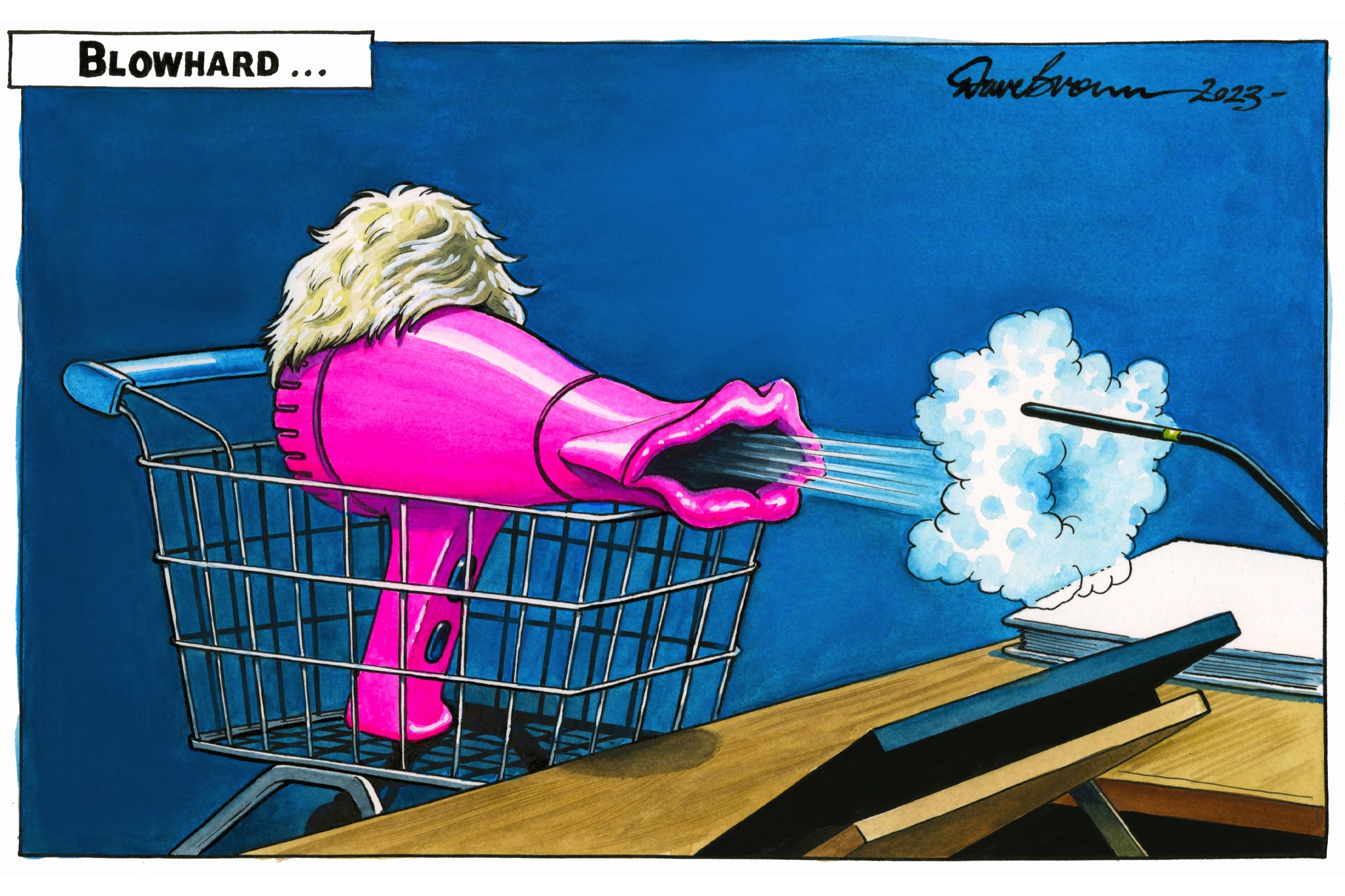The words of Lee Cain, Boris Johnson’s former director of communications, hung over his old boss’s evidence to the Covid inquiry. “Covid,” he said, “was the wrong crisis for this prime minister’s skillset.”
He can say that again. But he does not need to, because so many other people are saying it, too – including, by implication, Mr Johnson himself, whose wavering and inconsistent evidence today confirmed the impression of him as someone incapable of making up his mind.
The inquiry heard from the politician who wrote an article arguing one side of a case and then another article arguing the other side. There are great advantages in intellectual openness, and in testing the strengths of different arguments from different viewpoints, and Mr Johnson always displays a great deal of pluralism. Unfortunately, he neither seems to have focused sufficiently on the detail, nor to have decided a broad approach and stuck to it.
Even now, more than three years after the events being inquired into, he seems unable to decide what he thought. He started with a patently insincere apology, saying how sorry he was that people had died. He then admitted that he had made mistakes (unspecified), without actually apologising for them. He then veered between cautious defiance in defence of his record and a show of contrition, at one point holding his head and appearing to be close to tears.
He had obviously given some thought to his tactics, extravagantly congratulating Hugo Keith KC, the inquiry’s counsel, on “a very good question”, while trying to give as uncontroversial an answer as possible.
His arguments in defence of his record seemed infinitely flexible. Sometimes, he seemed to be more interested in public relations than in infection control. When he was asked to list his mistakes, for instance, the only thing he could cite was the imperfect “messaging” to devolved governments in Scotland, Wales, Northern Ireland and the mayoralties.
On a dozen or so occasions, he said he could not remember something, and he seemed inexcusably vague about how 5,000 of his WhatsApp messages went missing. He simply refused to engage with questions about the language and tone of many of the exchanges between his advisers, let alone to take responsibility for the atmosphere in No 10 that allowed such conversations to take place. And he resorted to repetition when asked if he had tried to get rid of Sir Mark Sedwill, now Lord Sedwill, as cabinet secretary. He wanted to leave, Mr Johnson repeated blandly.
At some points, he emphasised his liberal instinct and how resistant he had been to authoritarian measures to constrain citizens’ lives but at others, he seemed to be setting up Rishi Sunak as the leader of the lockdown-sceptic tendency in his cabinet – as if he were trying to cause difficulties for his successor, who is expected to give evidence to the inquiry next week.
To be fair to Mr Johnson, many of his defences are valid. He was indeed open to a wide range of expert opinions. He did generally, and especially in the early stages of the pandemic, follow the advice of Chris Whitty and Patrick Vallance, the medical and scientific advisers. And he was operating in an unprecedented and stressful situation in which many people would inevitably die.
But we return to Mr Cain’s words, that this was the wrong crisis for Mr Johnson. It is hard to avoid the conclusion that almost any other recent prime minister would have focused on the seriousness of the situation earlier, and would have grasped the detail of the problem more firmly.
Mr Johnson was chosen as prime minister as an agent of chaos who might be able to save the Conservative Party by breaking the deadlock over Brexit in parliament. His political campaigning skills were unusual, in that he was well suited to the task of cheering people up while thinking creatively of ways through the Brexit morass.
But he was the wrong person to lead the nation through a public health crisis that required nerves of steel, ruthless attention to detail and superhuman qualities of hard work. That was his tragedy, but it was an even sadder outcome for the nation that he led so inadequately.




Join our commenting forum
Join thought-provoking conversations, follow other Independent readers and see their replies
Comments